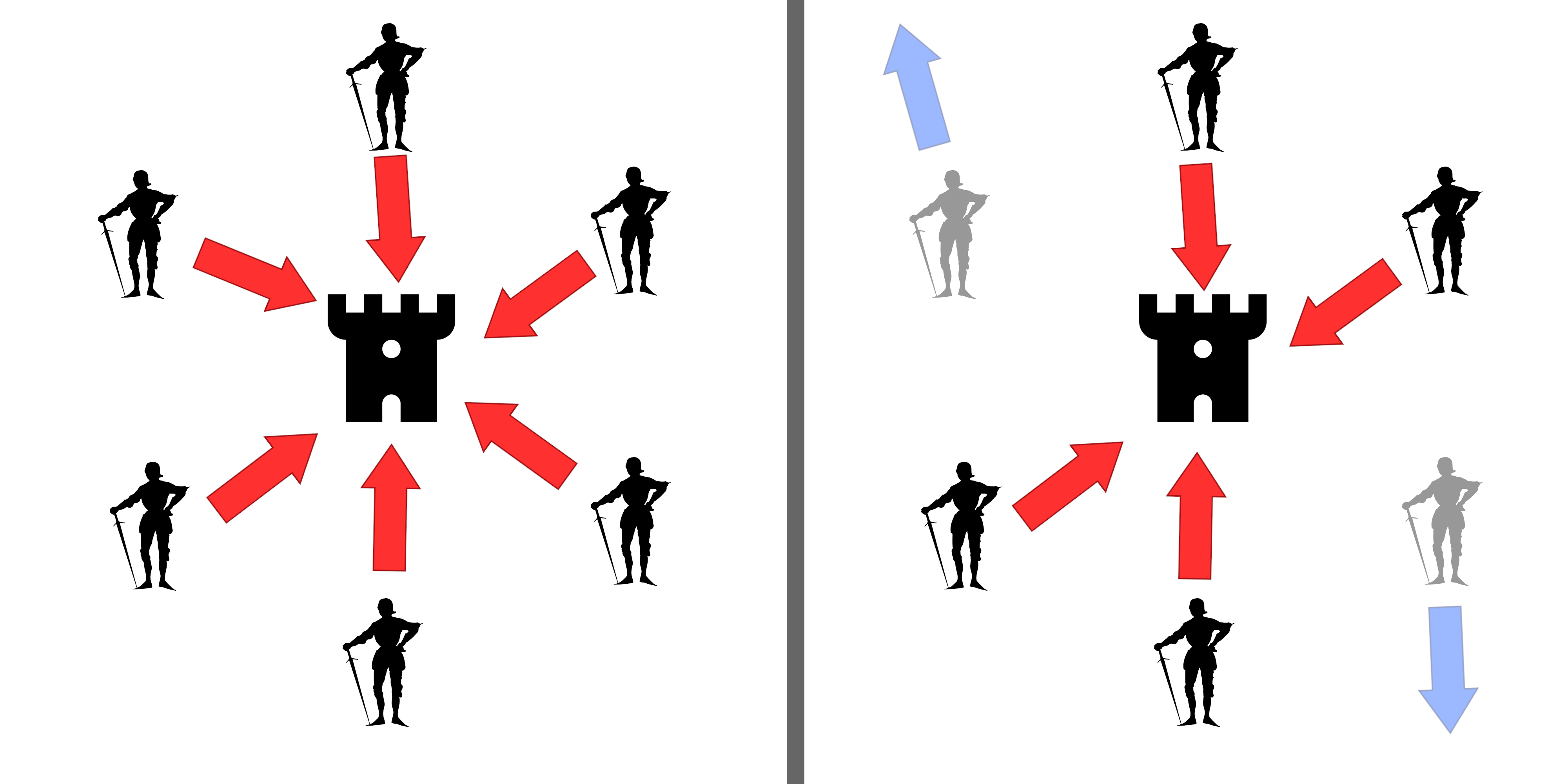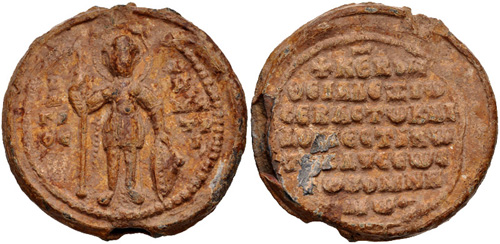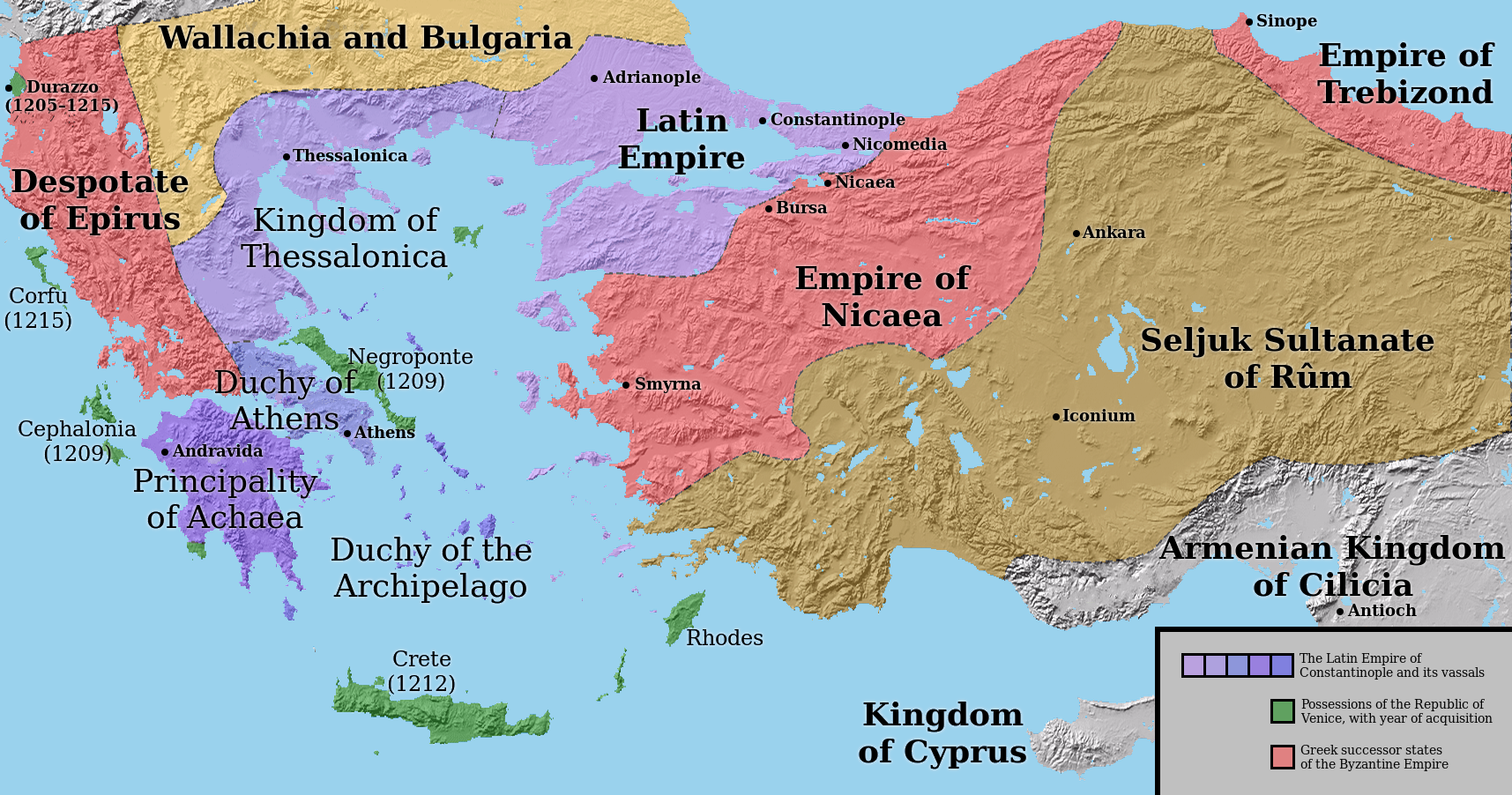|
Alexios Gidos
Alexios Gidos ( el, Ἀλέξιος Γίδος; ) was a senior Byzantine general of the late 12th century. He is the first attested member of the Gidos family, which rose to some prominence in the Byzantine Empire at the end of the 12th and the beginning of the 13th centuries. Alexios Gidos is first mentioned on the occasion of the Norman sack of Thessalonica in 1185, when he held the post of "Grand Domestic of the East", i.e. commander-in-chief of the Byzantine army's forces in Anatolia. He apparently retained his high post after the downfall of Emperor Andronikos I Komnenos, and re-appears in 1194, when Andronikos' successor Isaac II Angelos sent him against the Bulgarians. This time Gidos was "Grand Domestic of the West", but still commanding the eastern troops, while Basil Vatatzes commanded the western forces. The two generals were heavily defeated at the Battle of Arcadiopolis: most of the Byzantine army, along with Vatatzes, fell, while Gidos managed to escape only with gr ... [...More Info...] [...Related Items...] OR: [Wikipedia] [Google] [Baidu] |
Byzantine
The Byzantine Empire, also referred to as the Eastern Roman Empire or Byzantium, was the continuation of the Roman Empire primarily in its eastern provinces during Late Antiquity and the Middle Ages, when its capital city was Constantinople. It survived the fragmentation and fall of the Western Roman Empire in the 5th century AD and continued to exist for an additional thousand years until the fall of Constantinople to the Ottoman Empire in 1453. During most of its existence, the empire remained the most powerful economic, cultural, and military force in Europe. The terms "Byzantine Empire" and "Eastern Roman Empire" were coined after the end of the realm; its citizens continued to refer to their empire as the Roman Empire, and to themselves as Romans—a term which Greeks continued to use for themselves into Ottoman times. Although the Roman state continued and its traditions were maintained, modern historians prefer to differentiate the Byzantine Empire from Ancient Rome a ... [...More Info...] [...Related Items...] OR: [Wikipedia] [Google] [Baidu] |
Hellenized
Hellenization (other British spelling Hellenisation) or Hellenism is the adoption of Greek culture, religion, language and identity by non-Greeks. In the ancient period, colonization often led to the Hellenization of indigenous peoples; in the Hellenistic period, many of the territories which were conquered by Alexander the Great were Hellenized; under the Eastern Roman (Byzantine) Empire, much of its territory was Hellenized; and in modern times, Greek culture has prevailed over minority cultures in Modern Greece. Etymology The first known use of a verb which means "to Hellenize" was in Greek (ἑλληνίζειν) and by Thucydides (5th century BC), who wrote that the Amphilochian Argives were Hellenized as to their language by the Ambraciots, which shows that the word perhaps already referred to more than language. The similar word Hellenism, which is often used as a synonym, is used in 2 Maccabees (c. 124 BC) and the Book of Acts (c. 80–90 AD) to refer to clearly much ... [...More Info...] [...Related Items...] OR: [Wikipedia] [Google] [Baidu] |
Byzantine Generals
A Byzantine fault (also Byzantine generals problem, interactive consistency, source congruency, error avalanche, Byzantine agreement problem, and Byzantine failure) is a condition of a computer system, particularly distributed computing systems, where components may fail and there is imperfect information on whether a component has failed. The term takes its name from an allegory, the "Byzantine generals problem", developed to describe a situation in which, in order to avoid catastrophic failure of the system, the system's actors must agree on a concerted strategy, but some of these actors are unreliable. In a Byzantine fault, a component such as a server can inconsistently appear both failed and functioning to failure-detection systems, presenting different symptoms to different observers. It is difficult for the other components to declare it failed and shut it out of the network, because they need to first reach a consensus regarding which component has failed in the first pla ... [...More Info...] [...Related Items...] OR: [Wikipedia] [Google] [Baidu] |
12th-century Byzantine People
1 (one, unit, unity) is a number representing a single or the only entity. 1 is also a numerical digit and represents a single unit of counting or measurement. For example, a line segment of ''unit length'' is a line segment of length 1. In conventions of sign where zero is considered neither positive nor negative, 1 is the first and smallest positive integer. It is also sometimes considered the first of the infinite sequence of natural numbers, followed by 2, although by other definitions 1 is the second natural number, following 0. The fundamental mathematical property of 1 is to be a multiplicative identity, meaning that any number multiplied by 1 equals the same number. Most if not all properties of 1 can be deduced from this. In advanced mathematics, a multiplicative identity is often denoted 1, even if it is not a number. 1 is by convention not considered a prime number; this was not universally accepted until the mid-20th century. Additionally, 1 is the s ... [...More Info...] [...Related Items...] OR: [Wikipedia] [Google] [Baidu] |
The Oxford Dictionary Of Byzantium
The ''Oxford Dictionary of Byzantium'' (ODB) is a three-volume historical dictionary published by the English Oxford University Press. With more than 5,000 entries, it contains comprehensive information in English on topics relating to the Byzantine Empire. It was edited by Alexander Kazhdan, and was first published in 1991.''The Oxford Dictionary of Byzantium'', Oxford University Press, New York and Oxford, 1991. Kazhdan was a professor at Princeton University who became a Senior Research Associate at Dumbarton Oaks, Washington, DC, before his death. He contributed to many of the articles in the Dictionary and always signed his initials ''A.K.'' at the end of the article to indicate his contribution. Description The dictionary is available in printed and e-reference text versions from Oxford Reference Online. It covers the main historical events of Byzantium, as well as important social and religious events. It also includes biographies of eminent political and literary personal ... [...More Info...] [...Related Items...] OR: [Wikipedia] [Google] [Baidu] |
Alexios I Komnenos
Alexios I Komnenos ( grc-gre, Ἀλέξιος Κομνηνός, 1057 – 15 August 1118; Latinized Alexius I Comnenus) was Byzantine emperor from 1081 to 1118. Although he was not the first emperor of the Komnenian dynasty, it was during his reign that the Komnenos family came to full power and initiated a hereditary succession to the throne. Inheriting a collapsing empire and faced with constant warfare during his reign against both the Seljuq Turks in Asia Minor and the Normans in the western Balkans, Alexios was able to curb the Byzantine decline and begin the military, financial, and territorial recovery known as the Komnenian restoration. His appeals to Western Europe for help against the Turks was the catalyst that sparked the First Crusade. Biography Alexios was the son of John Komnenos and Anna Dalassene,Kazhdan 1991, p. 63 and the nephew of Isaac I Komnenos (emperor 1057–1059). Alexios' father declined the throne on the abdication of Isaac, who was thu ... [...More Info...] [...Related Items...] OR: [Wikipedia] [Google] [Baidu] |
Robert Guiscard
Robert Guiscard (; Modern ; – 17 July 1085) was a Norman adventurer remembered for the conquest of southern Italy and Sicily. Robert was born into the Hauteville family in Normandy, went on to become count and then duke of Apulia and Calabria (1057–1059), Duke of Sicily (1059–1085), and briefly prince of Benevento (1078–1081) before returning the title to the papacy. His sobriquet, in contemporary Latin and Old French , is often rendered "the Resourceful", "the Cunning", "the Wily", "the Fox", or "the Weasel". In Italian sources he is often Roberto II Guiscardo or Roberto d'Altavilla (from Robert de Hauteville), while medieval Arabic sources call him simply ''Abārt al-dūqa'' (Duke Robert). Background From 999 to 1042 the Normans in Italy, coming first as pilgrims, were mainly mercenaries serving at various times the Byzantines and a number of Lombard nobles. The first of the independent Norman lords was Rainulf Drengot who established himself in the fortress of ... [...More Info...] [...Related Items...] OR: [Wikipedia] [Google] [Baidu] |
Norman Conquest Of Southern Italy
The Norman conquest of southern Italy lasted from 999 to 1139, involving many battles and independent conquerors. In 1130, the territories in southern Italy united as the Kingdom of Sicily, which included the island of Sicily, the southern third of the Italian Peninsula (except Benevento, which was briefly held twice), the archipelago of Malta, and parts of North Africa. Itinerant Norman forces arrived in southern Italy as mercenaries in the service of Lombard and Byzantine factions, communicating news swiftly back home about opportunities in the Mediterranean. These groups gathered in several places, establishing fiefdoms and states of their own, uniting and elevating their status to ''de facto'' independence within 50 years of their arrival. Unlike the Norman Conquest of England (1066), which took a few years after one decisive battle, the conquest of southern Italy was the product of decades and a number of battles, few decisive. Many territories were conquered independ ... [...More Info...] [...Related Items...] OR: [Wikipedia] [Google] [Baidu] |
Normans
The Normans (Norman language, Norman: ''Normaunds''; french: Normands; la, Nortmanni/Normanni) were a population arising in the medieval Duchy of Normandy from the intermingling between Norsemen, Norse Viking settlers and indigenous West Francia, West Franks and Gallo-Roman culture, Gallo-Romans. The term is also used to denote emigrants from the duchy who conquered other territories such as England and Sicily. The Norse settlements in West Francia followed a series of raids on the French northern coast mainly from Denmark, although some also sailed from Norway and Sweden. These settlements were finally legitimized when Rollo, a Scandinavian Viking leader, agreed to swear fealty to Charles the Simple, King Charles III of West Francia following the Siege of Chartres (911), siege of Chartres in 911. The intermingling in Normandy produced an Ethnic group, ethnic and cultural "Norman" identity in the first half of the 10th century, an identity which continued to evolve over the ce ... [...More Info...] [...Related Items...] OR: [Wikipedia] [Google] [Baidu] |
Guy Of Hauteville
Guy of Hauteville (Italian ''Guido d'Altavilla''; died 5 July 1108) was an Italo-Norman soldier and diplomat who for a time served the Byzantine Empire. Guy was a younger son of Robert Guiscard, Duke of Apulia, and his second wife, Sichelgaita. During his father's expedition against the Byzantine Empire in 1081, he occupied Vlorë in Albania. He was present at his father's death in Greece on 17 July 1085.Raoul Manselli"Altavilla, Guido d’"''Dizionario Biografico degli Italiani'', vol. 2 (Rome: Istituto dell'Enciclopedia Italiana, 1960). After his father's death, Guy entered the service of his erstwhile enemy, Emperor Alexios I Komnenos. According to the emperor's daughter, Anna Komnene, he was drawn to Byzantine service by certain promises made by Alexios. At the Byzantine court, Guy became one of Alexios' most trusted councilors and was rewarded with the rank of ''sebastos''. In August 1096, he helped negotiate between the Alexios and the leaders of the First Crusade, even ser ... [...More Info...] [...Related Items...] OR: [Wikipedia] [Google] [Baidu] |
Frankokratia
The ''Frankokratia'' ( el, Φραγκοκρατία, la, Francocratia, sometimes anglicized as Francocracy, "rule of the Franks"), also known as ''Latinokratia'' ( el, Λατινοκρατία, la, Latinocratia, "rule of the Latins") and, for the Venetian domains, ''Venetokratia'' or ''Enetokratia'' ( el, Βενετοκρατία or Ενετοκρατία, la, Venetocratia, "rule of the Venetians"), was the period in Greek history after the Fourth Crusade (1204), when a number of primarily French and Italian states were established by the ''Partitio terrarum imperii Romaniae'' on the territory of the dissolved Byzantine Empire. The terms Frankokratia and Latinokratia derive from the name given by the Orthodox Greeks to the Western French and Italians who originated from territories that once belonged to the Frankish Empire. The Frankish Empire being the political entity which ruled much of the former Western Roman Empire after the collapse of Roman authority and power. ... [...More Info...] [...Related Items...] OR: [Wikipedia] [Google] [Baidu] |
Byzantine Empire
The Byzantine Empire, also referred to as the Eastern Roman Empire or Byzantium, was the continuation of the Roman Empire primarily in its eastern provinces during Late Antiquity and the Middle Ages, when its capital city was Constantinople. It survived the fragmentation and fall of the Western Roman Empire in the 5th century AD and continued to exist for an additional thousand years until the fall of Constantinople to the Ottoman Empire in 1453. During most of its existence, the empire remained the most powerful economic, cultural, and military force in Europe. The terms "Byzantine Empire" and "Eastern Roman Empire" were coined after the end of the realm; its citizens continued to refer to their empire as the Roman Empire, and to themselves as Romans—a term which Greeks continued to use for themselves into Ottoman times. Although the Roman state continued and its traditions were maintained, modern historians prefer to differentiate the Byzantine Empire from Ancient Rome ... [...More Info...] [...Related Items...] OR: [Wikipedia] [Google] [Baidu] |





